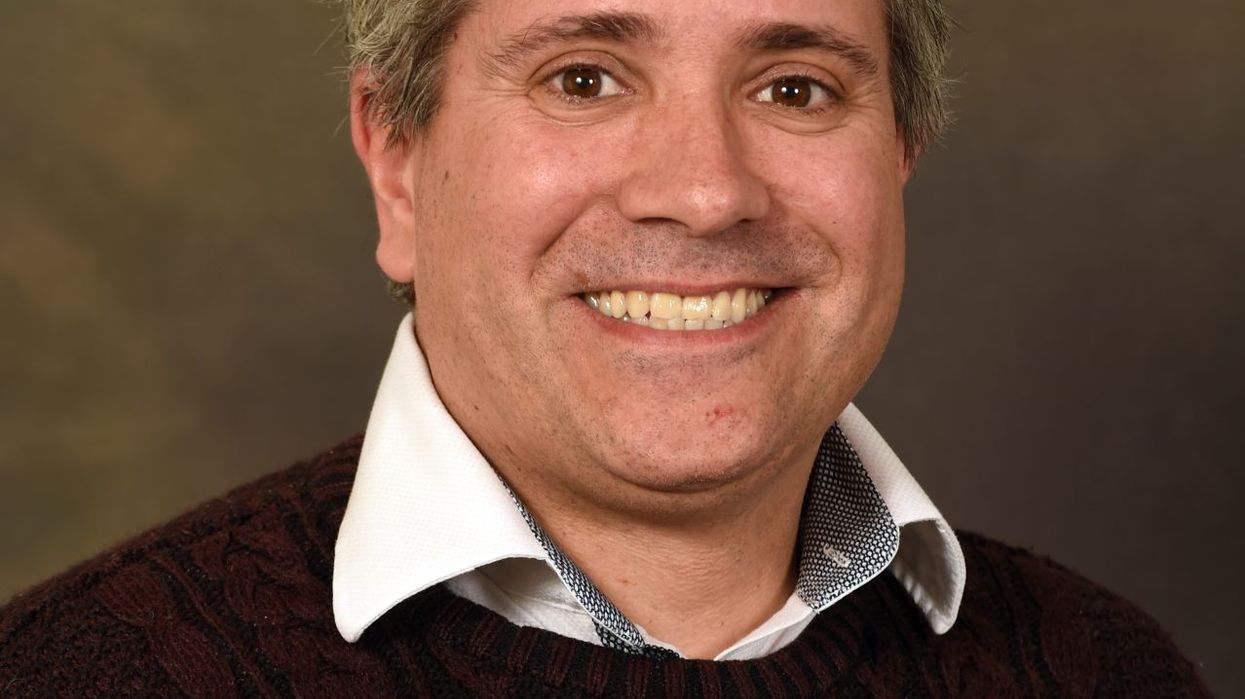By Elsy Gomez Campos
The coronavirus pandemic has put the spotlight back on the socioeconomic disparities affecting our society. The BAME population and the BAME NHS workforce have been disproportionately affected by the pandemic, and it did not come as a surprise to many of us, who have been, for years, highlighting the unfair, systemic racial inequalities at work, in society and their consequences.
As a pharmacist working on the frontline, I have seen how the difference in power has played a big part in the negative outcome for BAME professionals. Because they are more likely to work at a lower pay band than their white-counterparts, they have seen themselves having to take on patient-facing roles more often and in some cases without consideration to individual circumstances. Furthermore, in some cases, they have suffered discrimination during this period.
Compassionate leadership
I have heard and witnessed situations that demonstrate lack of compassion by some pharmacy managers. Situations where staff have feared for their life due to the lack of PPE or are working under increased anxiety because their needs and concerns have not been taken seriously, may haunt us for years to come.
Now more than ever, we need to practice compassionate leadership if we want to support the pharmacy staff who so amazingly have battled the pandemic. Pooja Sharma, Jayesh Patel, Mehool Patel, Jermaine Wright and Mandy Siddorn succumbed to the virus and we need to make sure we don’t forget their sacrifice. We are a big family and we all grieved the death of our five pharmacy colleagues, four of whom were from BAME backgrounds.
We must honour their memory and remember their names even if we didn’t know them in person. We need leaders that listen with empathy. We need humbled leaders willing to walk the walk and lead from the front. We need selfless leaders that makes all employees, including locums and temporary staff, feel safe and secure in times of unprecedented uncertainty.
We also need to share and listen to stories of what it is like to practice as a BAME pharmacist in the UK today – particularly stories from black pharmacists and pharmacy students who are not represented in leadership positions but are more likely to be the subject of Fitness to Practice investigations or fail the pre-registration exam, partially due to the lack of support during their pre-registration journey.
A personal journey
I am not an exception and I have stories of my own to tell. Years ago, while working at a teaching hospital in London, I highlighted the unprofessional behaviour of a pharmacy manager and some pharmacy colleagues.
As consequence of my actions, I lost the job I loved and worked hard for many years to get. Losing my job was traumatic and painful, but not a surprise if you take into consideration the treatment the NHS afford to those that speak up.
While I came to terms with the penalties of speaking up, I have been, till these days, unable to recover from the effect it had on me – the direct and indirect racism I faced from the people I exposed and the NHS managers that helped to cover up the wrongdoing.
At the time, I was lied to, racially stereotyped, isolated and victimised. Here I pause to say that the discrimination came from BAME and non-BAME alike. The reality is that people choose to be racist and this behaviour is not related to the level of melanin on the skin.
When the hospital managers found out that I took my grievance to the General Pharmaceutical Council, they referred me to the GPhC as retaliation. To my astonishment, the GPhC did not take forward my concerns and instead asked a law firm to investigate my Fitness to Practice.
Luckily for me, my case did not go to a hearing, but I live every day with the burden of having been referred to and investigated by the GPhC due to the racial hatred of my employer. I may not have been beaten up physically, but I was beaten up mentally.
Still, I was lucky, because I now know, that subtle injustice means that you don’t need to do something wrong to be found guilty of doing something wrong. Twice I have asked the GPhC to review my original concerns and twice they have refused. The pain and frustration continues and those that look like me working at the organisation that dismissed me are maybe at risk.
The UKBPA
I have to admit that I feel scared for the future of BAME pharmacists whose development and dreams may be destroyed if they refuse to tolerate wrongdoing or discrimination. It terrifies me that the GPhC can investigate you if the employers made a referral out of spite.
It pains me that BAME concerns and needs are usually not taken seriously and are often brushed under the carpet by those that have the authority to make changes.
“Lip service” and “complacency” from pharmacy leaders on matters of racial discrimination cause irreparable harm to pharmacy staff and by default to patients. I believe that it is up to us to start a movement, demand change and start “speaking truth to power” with empathy, if we want to see the changes we desperately need.
My past experience with the NHS and the GPhC left me shaken to my core, but I was determined to make a change. Forming the UK Black Pharmacists Association (UKBPA) is one of the many steps I have taken to protect black colleagues from going down the same path I could not avoid.
Black and Asian experiences are very different, so providing a forum to offer the support that often is withheld at the place of work has proven beneficial to many of the 400-plus members of the association.
Still, I acknowledge we have not done enough. Within our own association, we have to become more courageous, collaborative and willing to speak openly about our experiences, needs, weakness and strengths. Not speaking about it, can be interpreted as racial discrimination is not a problem we face on a daily basis in pharmacy.
Silence is no longer an option
Many have pleaded to support the ‘Black Lives Matter’ movement after the senseless death of George Floyd that took place in the US recently. However, for many of us, the outrage feels somehow inconsistent.
When you work with individuals that turn a blind eye to racial discrimination or are even part of it, as a way of trumping on others' talent to get ahead in their career, you are left wondering about the authenticity of pledging solidarity with the movement.
Even now, despite all the evidence, some black colleagues are not getting the risk assessment they need at work, so their anxiety continues.
Nevertheless, I am hopeful that as people become more aware of the deadly consequences of racism, more and more people will take proactive actions to make it a thing of the past. Racism is ignorance and we need to educate the pharmacy workforce about racism, white privileges and how to speak openly about the issues without becoming defensive or offensive.
Meaningful and long conversations are needed because it is obvious that silence is no longer an option.
Call to action
As founder and current President of the UKBPA and as member of the PDA Union Committee for the South East of England, I often come across extraordinary cases of discrimination. Because I have personally suffered the consequences of such acts, I can sympathise with the victims.
I feel hopeless and guilty because I did not have the courage to speak up earlier in my career. My past silence and the continuous silence of many have enabled wrongdoing within our profession. However, every now and then, I am dazzled by the courage of the new generation of black pharmacist and black pharmacy students.
The ‘Black Pharmacist Collective’ are doing a great job in highlighting injustice within the education system and the pharmacy profession. Recently, I was very impressed by the courage of a handful of black pre-registration pharmacists who rightly called out comments made by a member of RPS English Pharmacy Board at a webinar when discussing visa issues that could potentially affect the provisional registration of overseas pre-registration pharmacists. Despite the call out, the RPS decided that the way forward was to remove the comments from the webinar’s recording.
“Forgive and forget” is not always the answer to everything. Sometimes we need statements, debates and actions that will make sure the right people are in the right positions, so the right actions can take place. The lack of black faces in leadership positions in many pharmacy organisations is an obvious and historical problem that must be addressed immediately.
We need non-black pharmacists to sign up for a more inclusive leadership on all sectors of pharmacy. We need all pharmacists to educate themselves on racism and its consequences.
Books such as White fragility: Why it’s so hard for white people to talk about racism by Robin Diangelo, Why I’m not longer talking to white people about race by Reni Eddo-Lodge and Brit(ish): On Race, Identity and belonging by Afua Hirsch are good starting points.
Putting my story out for all to see, was not an easy decision. I hope that others – black and non-black pharmacists – will open up and tell kindly their personal struggles. I hope the GPhC, the RPS and many other pharmacy organisations take courageous steps and start including black talents in their Boards.
We don’t need more of what we already have. I am certain that everyone wants change and they want it now. But for that to happen, we need a ‘U’ turn and start doing things differently. Perhaps, we could see some resignations to give way to more diverse Boards. The UKBPA is full of experienced and talented black pharmacists wanting to make a difference and eager to have the opportunity. After all, no decisions should be made about us without us.
Finally, I have a threefold ’call to action’ request. I would like my pharmacy colleagues to:
- Call out acts of discrimination taking place in our pharmacy departments and pharmacy schools.
- Talk honestly and purposely about discrimination, including racism in the pharmacy profession.
- Share and learn from our past negative experiences, so what we went through doesn't repeat itself in the next generation.
I truly believe that there has never been a better time to start a change. Let’s not miss this opportunity. The time for change is now and we can do it together.
Elsy Gomez Campos is president of the UK Black Pharmacists Association.
Disclaimer: Views expressed in this opinion article are the author's own.








 Dymista® CONTROL (azelastine hydrochloride and fluticasone propionate) nasal spray
Dymista® CONTROL (azelastine hydrochloride and fluticasone propionate) nasal spray ![Potential Side Effects of Mounjaro [What You Need to Know]](https://www.pharmacy.biz/media-library/image.jpg?id=54516976&width=1245&height=700&quality=90&coordinates=0%2C29%2C0%2C29)








